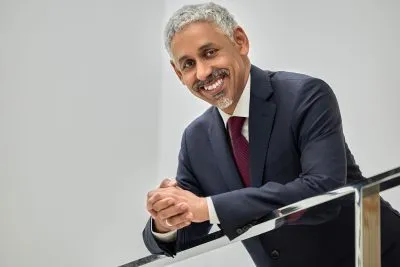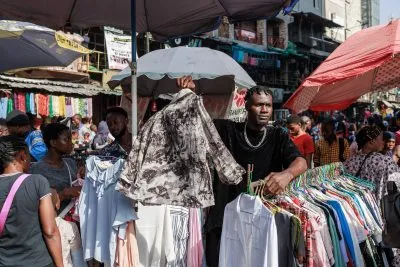At the beginning of the year, tensions were running high in the head office of Barclays Africa Group (BAGL) in Johannesburg, with stories being thrown around of banking giant Barclays PLC – the multinational and systemically important bank registered in the UK – planning on pulling out of Africa.
As the rumour mill churned, BAGL executives allegedly sent out a circular to all employees to allay growing fears: in short, the notice assured employees that Barclays PLC, the bank that owns 62.3% of BAGL, would not be selling its shares in the group.
Just a few weeks later, on 1st March 2016, Barclays PLC head Jes Staley officially announced that the bank planned to exit its African operations in the next two to three years to focus on business in the US and the UK. On the same day, Barclays PLC’s share price fell 8.72%.
The announcement was accompanied by a burst of media coverage implying that Barclays longstanding relationship with the continent was over. ‘Why is Barclays pulling out of Africa?’, ‘Barclays is forced to pull out of Africa’, and ‘Barclays could break its 100-year relationship with Africa’ rang the headlines.
Employees and customers were confused about what this would mean for their jobs and deposits. Supposedly, Barclays employees in Johannesburg were seen ripping down posters and covering up signs with the Barclays name emblazoned on branch walls, leaving only the Absa brand’s logo for customers to see. Barclays PLC bought a 55% stake in Absa, which was then incorporated as Barclays Africa in 2013.
“I heard of one businessman in Botswana pulling all of his money out of Barclays because they thought that the business was completely closing,” says one analyst based in Johannesburg. “At first, people didn’t really understand what was actually happening and the the announcement didn’t really help clarify anything.”
“We didn’t know the detail”
“We weren’t supposed to know what was happening,” says David Hodnett, deputy chief executive offer of Barclays Africa in an interview with African Banker.
“If we had found out before the announcement – that Barclays PLC intended on selling down its stake in BAGL – then legally Maria [Ramos, the CEO of BAGL] and myself would have had to announce this as part of our responsibility to the Africa group. We officially found out when the rest of the world did.”
Hodnett admits: “We didn’t know the detail, but I think that anybody looking at the structure of where global banking was going could sense that something was going to happen to Barclays PLC’s structure. We were preparing for something, but we weren’t entirely clear on what that something was until the announcement was made.”
“Even if they didn’t entirely know, and I’m sure that they did, it came across as slightly deceitful,” says one banker at a regional bank. “This was going to hurt their reputation.”
A clear advertising campaign via radio and billboard soon came live. South African radio relayed messages that Absa was a truly African bank no matter who the owner was. For that banker, “it looked like a desperate attempt for Barclays Africa to claw back lost legitimacy.”
Regulatory issues back home
Despite the promise of growth, attractive demographics and untapped potential, banks have been pulling out of emerging markets for some time. In February 2015, Citigroup announced that it would be selling its retail-banking and credit-card operations in Brazil, Argentina and Colombia; in August 2015 HSBC sold its Brazilian business for $5.2bn to local player Banco Bradesco and recently scrapped the sale of its Turkish business only after an appropriate buyer couldn’t be found; and back in 2014, Standard Chartered decided to close around 100 branches over time across its emerging market network in Africa and Asia to cut costs.
Reeling from the commodities downturn, currency pressures and the outflows of foreign exchange, some banks in Africa have been scaling back – especially in those countries that have been hit hardest. But Africa’s economic stress has little to do with Barclays PLC pulling out, says Hodnett. Instead, Basel III recommendations and regulations around capital requirements for systemically important banks are beginning to take their toll.
Moreover, Barclays PLC is still dealing with the fallout from the Libor-rigging scandal which broke in 2012 – out of the six banks that were fined for manipulating Libor in the UK, Barclays was penalised the heaviest, ordered to pay £3.9bn ($5.6bn) in May 2015. According to some media reports, Barclays PLC has been fined nine times since 2009, culminating in a bill just shy of $500m.
“While Barclays PLC owns only 62.3% of Barclays Africa, the group shoulders 100% of the burden because of local and international bank regulations. And while our return on equity [ROE] for BAGL is 17% – one of the highest in South Africa – when this is translated into sterling, the ROE drops to 9%, which isn’t as attractive,” explains Hodnett.
“It was made very clear in the announcement that the sale had nothing to do with Africa’s fundamentals, nothing to do with South Africa’s slowing economy, and nothing to do with political issues in the country either, but to do with regulatory issues back home. In fact, Barclay’s Africa is one of the best performing banks in the region,” he says.
BAGL spans 10 countries across Africa, with around 80% of its earnings coming from its South African banking business, Absa. As well as an ROE of 17% for 2015, the group made a profit of R14.3bn ($1bn), with headline earnings up 10%. For comparison, Standard Bank recorded a ROE of 15.3% with a profit of R22bn in the same year.
But the bank’s strong track record is being clouded by differing perceptions, despite the clarity that Hodnett insists was present in the announcement. “Because Barclays Africa is mainly made up of Absa in South Africa, the risk associated with the country may put off some investors no matter the reality,” says a capital markets banker based in London. “Investors see a devaluing currency, a president who might be ousted and a struggling economy. Are investors interested in buying such an asset, heavily focused on South Africa, which could cost around $4bn for the 62% stake? I’m not sure.”
“The timing was pretty terrible,” says Cas Coovadia, managing director of the Banking Association of South Africa. “In the midst of South Africa’s economic downturn, Barclays PLC is pulling out. It’s not the best signal to send to the market.”
Client loss and brand loyalty
Some bankers allege that due to the announcement, Barclays Africa is losing important clients – long-term clients that have helped sustain the group as one of the leading financial businesses in Africa and whose loss could affect a sale. Bankers on the ground in Johannesburg brag of being approached by some of BAGL’s current customers, looking for alternatives in the cloud of uncertainty. “While Barclays Africa is haemorrhaging clients, we will willingly pick up the extra business,” says the regional banker.
And to which organisation, if at all, will these clients remain faithful? “Some of these large corporates use Barclays Africa because they are able to leverage off of the group’s network not only in Africa but internationally through Barclays PLC,” says the banker.
“For example, clearing processes are done through Barclays PLC’s infrastructure in the UK, which is a huge bonus to businesses banking with BAGL. But what happens to these processes once Barclays PLC sells down its stake? In another example, a bond mandate may have been won by Barclays Africa because of the group’s relationship to the British entity. Once the relationship ends, who will take charge of the deal? I imagine that there will be a few scraps between the groups around such issues.”
Branding is another concern. With over 100 years on the continent, Barclays has created a loyal following with brand recognition at its core. The loss of the Barclays PLC as a major shareholder leaves the branding of the African business in limbo. If the strong blue image of an eagle that adorns Barclay’s branches throughout Africa is lost, some assume there could also be an exodus of customers as well. How easy will it be to sell a banking group that’s losing deposits?
One banker recalls a conversation he had with some Barclays Africa employees about how the group may rebrand itself as “Prosper Bank” – a name that harks back to one of the group’s ad campaigns launched in 2014. It could take time for customers to get used to a rebrand.
Hodnett scoffs at the idea: “Brand is definitely an issue, but it is contractually protected so we don’t have to change anything in the short term. But more importantly, our management team in Africa will stay. We aren’t abandoning our customers and that’s the message we are trying to relay.
“We do have a competitive advantage being part of Barclays PLC but Barclays PLC may remain involved with a 20% stake in the business. If this is the case, then we would continue our business relationship with them and our advantage will remain,” says Hodnett.
And in the most extreme scenario – where Barclays PLC sells its entire stake in the group – BAGL will remain strong, says Hodnett. It has a network like no other: it’s the second-biggest bank in Botswana, the third in Ghana, the fourth largest in Kenya, the third in Zambia, and it still has the biggest retail presence in South Africa. “I am confident that clients will still want to be part of our organisation, and we are communicating with them about what is happening much more frequently and transparently to try and clear up any confusion,” he says.
Looking at the detail, Hodnett believes that there hasn’t been any unusual client activity. “We lose and gain corporate clients all the time and customers withdraw deposits all the time. This is nothing more than regular banking activity. I will admit that there have been some tenders that we would have won very easily before the announcement that now require a lot more work.”
Even with management firmly in place, strong fundamentals and one of the largest branch networks of any pan-African bank, the current economic climate dictates that it will be very difficult to find a buyer for the whole stake regardless. The regulations that prompted Barclays PLC’s decision to sell its 62.3% stake will be off-putting for others.
South Africa’s regulator, wary of a monopoly if another South Africa bank decides to pick up a stake in the group, will be central to any decisions around a sale. A consortium of like-minded investors may be the best-case scenario for BAGL.
As the Johannesburg-based analyst says: “Although it’s hearsay, I did hear from a source in the bank that BAGL management are entirely against a large stake going to a Chinese investor. With capital tied up for many potential buyers at the moment, shunning the Chinese could be a huge mistake.”
“While Staley says a sale will be completed in the next two to three years, Absa is keen to see a deal closed as soon as possible to ensure that no further damage will be done to the bank’s brand in South Africa,” says the capital markets banker. If anything is clear, it’s that a single buyer hasn’t emerged as yet.
“Has there been uncertainty created as a result of this announcement? Absolutely. But from the point of view of staff, from a shareholder point of view, from a customer point of view, there will be question marks until the end picture is known. All we can do in the meantime is be as transparent about the process as possible,” says Hodnett.
Kanika Saigal
Want to continue reading? Subscribe today.
You've read all your free articles for this month! Subscribe now to enjoy full access to our content.
Digital Monthly
£8.00 / month
Receive full unlimited access to our articles, opinions, podcasts and more.
Digital Yearly
£70.00 / year
Our best value offer - save £26 and gain access to all of our digital content for an entire year!

 Sign in with Google
Sign in with Google 





